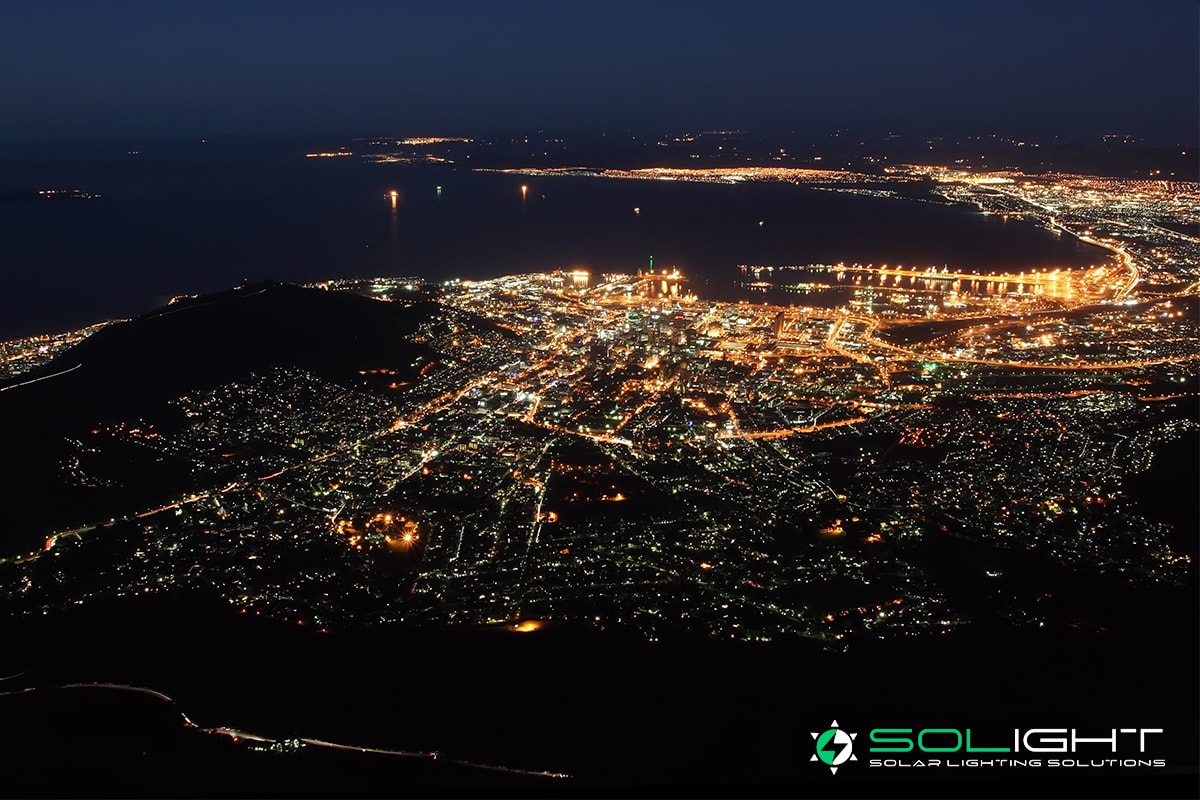Recent events have brought into sharp focus how heavily the world relies on fossil fuels. The timeline before we are all dependent on solar power as a cleaner, greener, cheaper alternative may have shortened dramatically.
Let’s look at the reasons renewables are the way forward and the potential for solar power to become the primary source of electricity for South African homes and businesses.
What Are the Advantages of Renewable Energy?
Any energy that originates from a natural source (such as the sun) is available in infinite supply and replaced faster than we can consume.
The main issues with fossil fuels (think oil, gas or coal) are that they are not renewable, take millions of years to replenish, and generate harmful carbon emissions that damage our atmosphere.
Moving from fossil fuels to renewables has also become far more urgent in the past few months:
- Supply chain shortages, mostly originating during the COVID-19 pandemic, continue to mean that raw materials are taking considerably longer to be delivered or manufactured.
- Lack of availability has created global demand that exceeds supply by 2%. Accenture explains that the need for oil and gas was already exceeding availability before the Ukraine conflict.
- A combination of higher demand, lower capacity and inflation have pushed the prices of oil and gas upward by between 40% (crude oil) and 80% (coal), with a further increase of 50% or more expected in the next year per The World Bank.
This cost crisis means that the need to replace fossil fuels with a cheaper, sustainable renewable energy source is now critical.
Why Is Solar Power So Important to the South African Economy?
Renewable energy sources have often been considered expensive, not in ongoing commodity costs – since there are none – but in creating the infrastructure to harness them.
As global governments accelerate their plans to replace the bulk of their fossil fuel consumption with renewables, we now have a scenario where the national grid can happily absorb excess solar panel energy.
What makes solar energy more appealing than any other renewable, such as wind or hydropower?
- Solar power is more abundant than any other energy source – and is available even during cloudy or dull weather conditions.
- There is 10,000 times more solar energy available than the global population can use.
- Solar energy has versatile uses, delivering heating, lighting, electricity and cooling power by converting sunlight into energy.
- The costs of producing solar panels have dropped steeply, and they are now the cheapest possible way of creating electricity.
- A quality solar panel can last around 30 years, and a standalone solar light can last over a decade, depending on usage levels and the type of battery.
The cost of renewable solar energy has fallen 90% since 2009, and it is far more accessible to fit a set of solar security lights in your home than installing a wind turbine or a hydroelectric waterfall.
How Solar Energy Usage is Changing in South Africa
Of course, in South Africa, solar power has a bigger part to play when we consider the 1,130 hours of power cuts during 2021 alone.
A legacy of poor maintenance and mismanagement at Eskom has meant that the national grid only has the power to provide 62% of the energy the country needs – a capacity gap that inevitably leads to blackouts, business closures and a lack of safety lighting. In a briefing summarised by The Daily Maverick, the group’s COO said last month that Eskom ended 2021 at just 55.5% coal capacity and requires 4,000 MW of energy generation to cope.
However, in a major shift, the state utility company has also launched a multi-billion funding plan to close down most of its coal-powered plants by 2050 and replace them with renewable energy sources.
The expanded solar energy provision was originally due to be completed next year, alongside other renewable energy projects, but is currently around two years behind schedule.
All these contributing factors mean that solar has become a shining beacon for transformation and offers us an alternative to an ailing power grid that isn’t fit for purpose.
South Africa has 2,500 annual sunshine hours per year (and year-round sunshine in southern regions) with sufficient solar radiation to fulfil all energy demands.
Will All Domestic Lighting Systems in SA Become Solar Powered?
As authorities begin to recognise the solar opportunity, it seems extremely likely that at least a proportion of all national power will be produced through solar and other renewables.
Solar power is low-cost, carbon-neutral, and that the technology already exists to use it to replace conventional power plants makes for a compelling case. For business owners, landlords and homeowners, solar lighting is highly efficient and requires relatively small panels to provide plenty of energy for continual, high-powered lighting.
Direct sunlight is readily available, and enhanced solar lighting models can charge in any weather conditions, with no electrical wiring hazards or maintenance costs.
Although interior solar lighting requires more in the way of circuitry, it is equally inexpensive. Once the initial hardware has been bought, it remains cost-free for years – with most solar batteries expected to stay in good condition for at least ten years.
Microgrids are one potential development where electricity is generated for a specified area such as a neighbourhood, residential estate or town, and uses one solar grid to bring electricity to even remote communities.
While we can’t predict the future, we can see convincing upward trends in solar energy usage.
Although it may take a few years, we anticipate solar power being a big part of the South African energy system – in a much shorter timeframe than you might imagine!
For more details about solar lighting solutions or any of the information shared here, please get in touch with the solar lighting professionals at SoLight.





